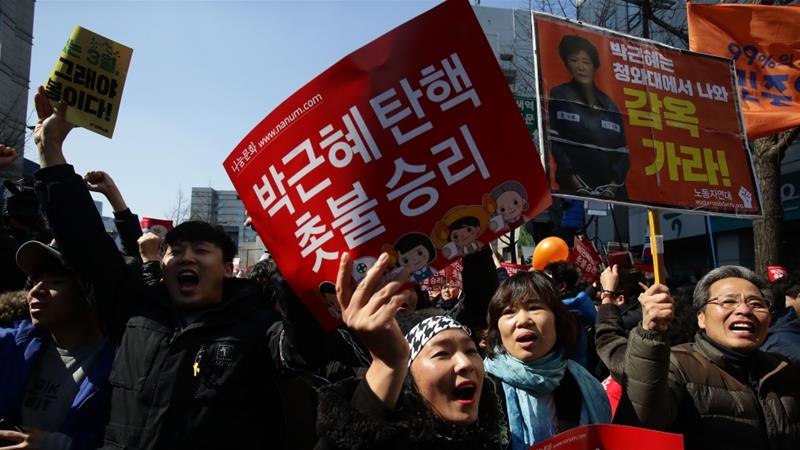Park's ouster
March 14, 2017 | Expert Insights

Where do South Korean politics go from here?
Over the weekend, tens of thousands of people massed in Gwanghwamun Square, a large public space in the heart of the capital, Seoul, for one last Saturday evening protest, which ended with a firework display that lit up the night-time sky while celebrating a court's decision to formally impeach Park.
Since allegations of corruption and influence peddling involving now-former President Park Geun-hye began to surface last year, large crowds gathered in Gwanghwamun to march and chant for Park to be removed from office. The protesters represented a broad swath of South Korea's population, among them students, professionals and labourers. Many protests had an upbeat, festive atmosphere.
Why did Park lose her job?
- South Korea's President Park Geun-hye had become the country's first democratically elected leader to be forced from office.
- Ms Choi is accused of using her presidential connections to pressure companies to give millions of dollars in donations to non-profit foundations she controlled.
- Ms Park is alleged to have been personally involved in this, and to have given Ms Choi unacceptable levels of access to official documents.
- Judges unanimously upheld parliament's decision to impeach Ms Park over her role in a corruption scandal.
- South Korean law mandates that a presidential election be held within 60 days of a president's impeachment, meaning voters will likely go to the polls on May 9.
Analysis
- South Korea's next president will reduce the use of nuclear power, and cancel plans to construct new nuclear plants. But is that the only thing to do? There is a lot still to be done. It’s described that Park's impeachment as a sign that the South Korean system works, even though it isn't perfect.
- The anger was directed at Park Geun-hye because she, on a personal level, came to symbolise a corrupt, pre-modern and undemocratic system of rule by one small, incompetent group of people.
Assessment
The South Korea's liberals could take advantage of a right-wing beset by scandal and internal division. Liberal stalwart Moon Jae-in (who lost the 2012 president election to Park Geun-hye) has a comfortable lead in the latest polls, with 32 percent of support; Hwang Kyo-ahn, the prime minister and acting president, is his closest right-wing competitor, trailing with nine percent.








Comments